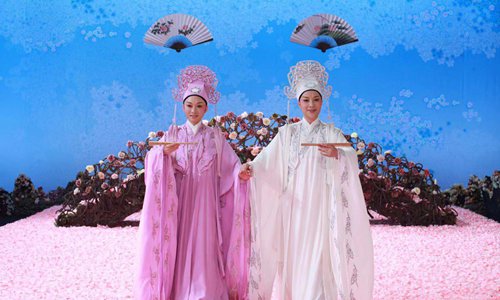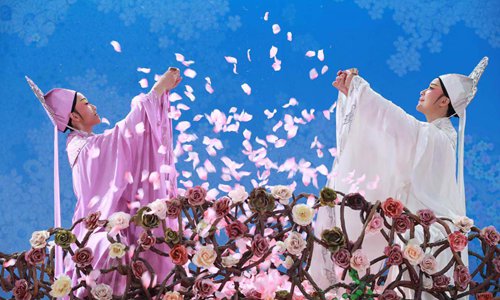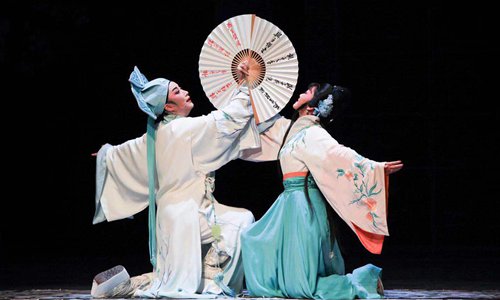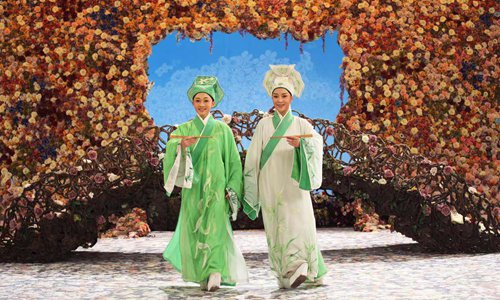HOME >> ARTS
'Butterfly' theater shines at West Lake to promote local Yue Opera
Source:Global Times Published: 2019/10/3 10:43:21

Photo: Courtesy of Zhou Hanxiao

Photo: Courtesy of Zhou Hanxiao

Photo: Courtesy of Zhou Hanxiao

Photo: Courtesy of Zhou Hanxiao
China's newly opened Xiaobaihua Yue Theater has launched a new season featuring classic local Yue operas in Hangzhou, East China's Zhejiang Province to mark the ongoing week-long national holiday.
As the second most popular Chinese opera genre next to Peking Opera, Yue Opera is popular around the country, especially in East China's Jiangsu, Shanghai, Zhejiang and Fujian.
Butterfly Lovers, China's version of Romeo and Juliet, staged by the Xiaobaihua Yue Opera Troupe kicked off the season on Thursday as well as the test operation of the new theater.
The theater, designed by Chinese architect Li Zuyuan, resembles a giant butterfly resting in the neighboring West Lake, the city's iconic tourism spot, as well as a thousand sliver butterfly logos on the façade.
Due to the Butterfly Lovers story, butterflies have been the symbol for Yue Opera, which is primarily performed by women, and creates a number of love stories in its repertoire and very little acrobatic fighting.
According to the architect, developing Chinese aesthetics creates an oriental symbol. "The butterflies in the story are a perfect symbol. A caterpillar must pass through the cocoon stage to become a butterfly. The wishes for the theater will be the same," he told qianlong.com.
For 57-year-old Mao Weitao, the leading actress of the troupe and head of the theater, it is an 18-year-old's dream coming true. "Eighteen years later, Yue Opera finally has its own theater. In the future, we will not only stage Yue Opera performances, but also host international events to communicate with international operas," she said.
"Butterfly also reminds us of Butterfly Effect. The theater can bring larger influences to the city and the country through the effect. Yue Opera is full of possibilities and brings us a large space of imagination."
The season will also feature performances like Legend of Chunxiang, an adaption of a Korean love folk story, A World of Fickleness, Coriolanus and Du Liniang, a new work based on Shakespeare's Coriolanus and Chinese playwright Tang Xianzu's The Peony Garden.
Global Times
Posted in: ART